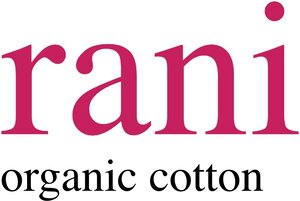WHY BUY ORGANIC COTTON?
Organic cotton is a natural, renewable and biodegradable fibre. It benefits cotton producers and the environment in developing countries by avoiding the harmful effects of toxic pesticides, and the reduced cost of production improves social conditions. Consumers in the UK also benefit from garments that are manufactured without the use of thousands of toxic and carcinongenic chemicals. By contrast the non-organic cotton industry is a huge source of global environmental pollution, using almost one quarter of all the world’s insecticides and 10% of pesticides, social conditions for cotton growers can be poor, with poverty, health problems and suicide common, and thousands of chemicals are used to turn raw material into clothes, towels, bedding and other items that we put next to our skin every day.
Organic cotton provides the following benefits:
It's better for the farm environment.
Organic fibres are grown without the use of synthetic fertilisers or toxic pesticides. By building soil fertility naturally through the use of compost and manure organic farmers help lock CO2 into the soil, helping mitigate climate change, and they also avoid the greenhouse gas emissions associated with energy intensive fossil-fuel based fertilisers. It also avoids the use of the toxic pesticides that, in non-organic systems, are responsible for poisoning wildlife and rivers, as well as killing an estimated 16,000 people each year.
It's better for workers in the developing world.
By avoiding toxic pesticides cotton workers benefit by avoiding the associated health problems and deaths common in non-organic cotton production. Avoiding pesticides also reduces production costs and farmer debts – the burden of pesticide debt has resulted in thousands of suicides in the developing world.
It avoids GM.
GM is banned in organic systems – an estimated 30% of all cotton grown worldwide is genetically modified. GM cotton poses a potential risk to wildlife and human health, as well as exposing farmers to unnecessary expense – Greenpeace research in South India in 2009 showed that genetically modified Bt cotton did not result in significantly higher yields than organic cotton, but cost farmers twice as much to produce as organic.
The end garments are residue free.
By prohibiting and restricting harmful chemicals in organic textile production and processing, final products don’t contain allergenic, carcinogenic or toxic chemical residues from them. Tests on conventional clothing have revealed traces of pesticides, fire retardants, formaldehyde and toxic dyestuffs. These residues can be inhaled or absorbed through the skin and may cause allergies, skin rashes or respiratory problems. Babies are particularly vulnerable as their skin is much thinner than adults.
Many thanks to the Soil Association for putting the above info so succinctly and for championing organic cotton:
http://www.soilassociation.org/whatisorganic/organictextiles/organiccotton
Below is a documentary film showing the difficulties of non-organic cotton farmers in India:

